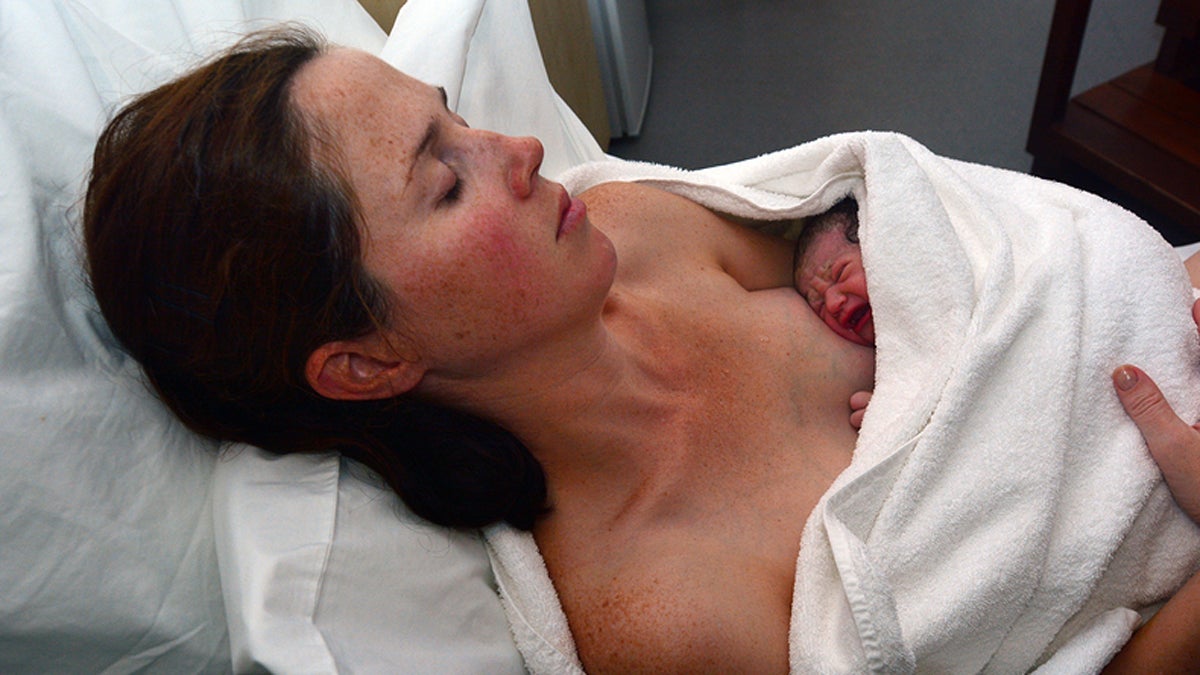OB-GYNs reassess optimal level of pain medication after C-sections
Listen
(lucidwaters/Bigstock)
In the midst of the opioid epidemic, researchers at Vanderbilt University wanted to see the level of pain medicine providers were prescribing to moms recovering from cesarean sections.
They found that doctors were prescribing more pills than most women needed — but several Philadelphia doctors said that may be changing.
A C-section is major abdominal surgery, so doctors usually prescribe some kind of opioid and another analgesic — such as ibuprofen — for women to take home while they’re recovering.
The Vanderbilt study of 200 women found most new moms were prescribed more opioids than they needed. In fact, 75ercent who received prescriptions had pills left over. And that’s a concern, said lead researcher Sarah Osmundson, an OB-GYN and assistant professor at Vanderbilt.
“We worry a lot about — not necessarily the person we prescribe to using it for nonmedical uses — but there certainly can be family members and relatives,” she said. “And studies have shown that a lot of experimentation with opioids have come from leftover opioids.”
About 90 Americans die every day from opioid overdoses that include prescription drugs and heroin. And deaths from prescription opioids — drugs including oxycodone, hydrocodone, and methadone — have more than quadrupled in the U.S. since 1999, according to the Centers for Disease Control and Prevention.
Jason Baxter, an OB-GYN at Jefferson Health in Philadelphia, said he’s careful when prescribing opioids. He pointed to the Pennsylvania state guidelines, which recommend a course of opioids for just five to seven days after a C-section.
“I have many hard conversations, but frankly when I talk to women about risks and benefits, they listen and are appreciative,” Baxter said. “And I find that I’m not having to overprescribe opioids.”
It’s important to understand that the researchers aren’t saying that doctors shouldn’t prescribe opioids after C-sections, said Osmundson.
“We have patients who are going to be going home and are going to be caring for a newborn and caring for other children, so we don’t want them to be in a situation where they’re in uncontrolled pain,” she said.
But she and her fellow researchers are advising providers to prescribe in a more thoughtful way that’s tailored to the individual patient.
Dr. Owen Montgomery, chairman of Drexel College of Medicine’s Department of Obstetrics and Gynecology, agrees. His team has scaled back the standard prescription for take-home oral narcotics from 30 Percocet pills to 20.
“You really don’t need to have 10 Percocets sitting in a bottle for two years in the back of your medicine cabinet,” he said. “But if you needed a second prescription, then your physician or your midwife should be readily available and compassionate and get you another prescription on an individual basis.”
At one point, Montgomery said, the trend was for doctors to skimp on pain meds. But pain relief and prescribing work like a pendulum, he and Baxter said. After what some call a time of overprescription and as awareness of the opioid crisis grows, the pendulum is starting to swing away from prescribing a large number of pills.
Osmundson said the next phase of research will focus on estimating the right level of medication new moms need when they leave the hospital — so their pain is managed without leftover pills that could fall into the wrong hands.
WHYY is your source for fact-based, in-depth journalism and information. As a nonprofit organization, we rely on financial support from readers like you. Please give today.

